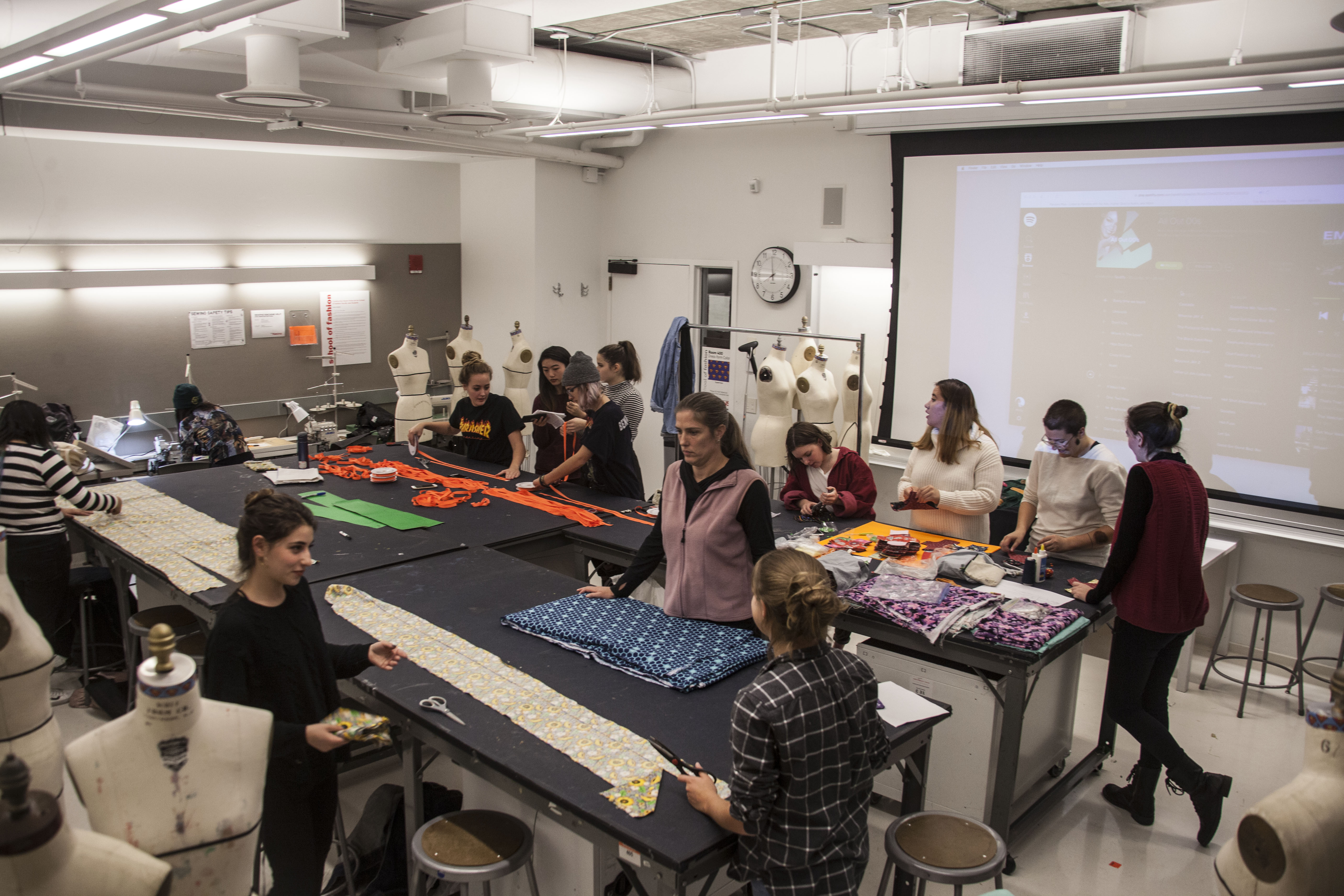Seventeen New School students gathered together on Oct. 25th in a University Center classroom to make reusable menstrual pads, create period-positive art, discuss the benefits and drawbacks of menstrual cups, eat Oreos and have spontaneous dance parties to “Milkshake” and other songs on the “All Out 00s” Spotify playlist.
“You shouldn’t be embarrassed to bleed,” said one of those students Amanda Kusnick. This mindset drove the university’s first Days for Girls club meeting, where students volunteered to help make menstruation less of a nuisance in many people’s lives.
Days for Girls is an international non-profit organization that promotes menstrual hygiene awareness and easy access to sustainable menstrual hygiene products. Jill Miller is the director of the New York City Chapter for Days for Girls and helped create the new student organization with New School students Molly Oberman and Kelsey Podaras, who are the club’s co-presidents.
The club invited students to help construct Days for Girls kits that provide washable menstrual hygiene products to people in need. The kits include eight cloth pads reusable for up to three years, underwear, soap, a washcloth and ziplock bags for transportation and washing used pads. The kits are especially useful and discreet for people who live in areas with cultural taboos against menstruation; because menstrual hygiene products are often stigmatized, some people cannot get access to them and carry on with their daily lives.
“Menstrual hygiene management isn’t just about access to pads. It really is about time. It’s time to go to school. Time to go to work. Time to do the things that you want to do but can’t,” Miller said.
All 21 volunteers split up into different stations in room 400, a large classroom with wide workshop tables, mannequins and sewing machines, to make a few parts of the kit. Some cut elastic drawstrings for the kit’s bag, others cut bright and flowery cloth into rectangles for the inner and outer layers of the pads. A few inserted snap buttons onto moisture barrier shields, which hold the cloth pads in place on underwear. The only student with sewing experience surged the layers of the pads together at a sewing machine, while a couple other students watched and learned.
In addition to the menstrual kits, the Days for Girls club is also bringing awareness to the stigma against menstruation by creating a currently unnamed zine to be distributed at the start of the spring 2017 semester. They are looking for submissions that can range from artwork to manifestos as long as it is period-positive.
At the meeting Sydnee Gee, a student member of the club in charge of the zine, invited students to create collages from magazines to be part of the zine.
“We’re going to try to use [the zine] as a source of having an ongoing dialogue about menstruation, about our experiences, about the stigma around it,” Gee said, “and opening that up to anyone. You don’t have to have a period in order to contribute.”
Many of the attendees already had a lot to say about this topic, including Gideon Lazarus, who was surprised to see that he was the only one in the room who identifies as a male.
“The New School is so progressive but part of it is like who would you bring [to this meeting]? You’d bring a friend, but the friend that came to mind wasn’t a cis man,” Lazarus said. “It’s important to be open and have a dialogue because half the planet is probably menstruating. If half of all non menstruators did something that required that amount of money, time and investment…we would be talking about it a lot.”
Another student, Anais Rodriguez, agreed. “It’s not necessarily that people want to be ignorant or be insensitive to the whole issue. It’s just that sometimes they just don’t know…People dismiss it because they don’t understand it,” she said.
“Or people don’t want to vote for Hillary because they think she’s going to get PMS and f—k up the entire country,” said Piper Olsen, undeclared New School student. “Like that’s not how it works.”
Photo by Julia Himmel







